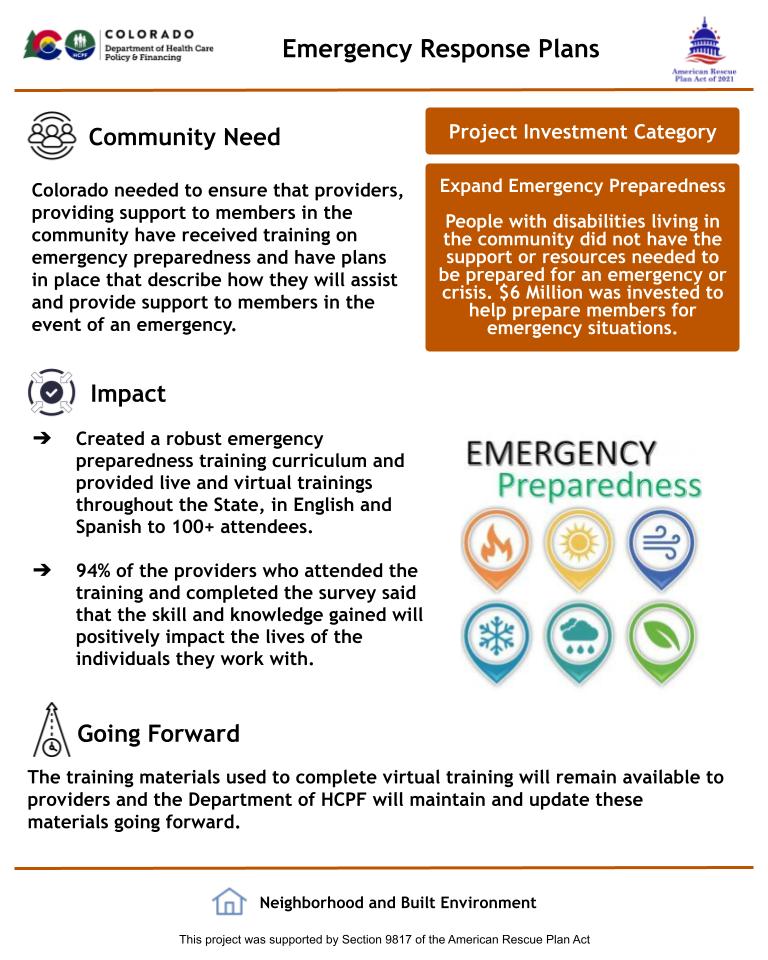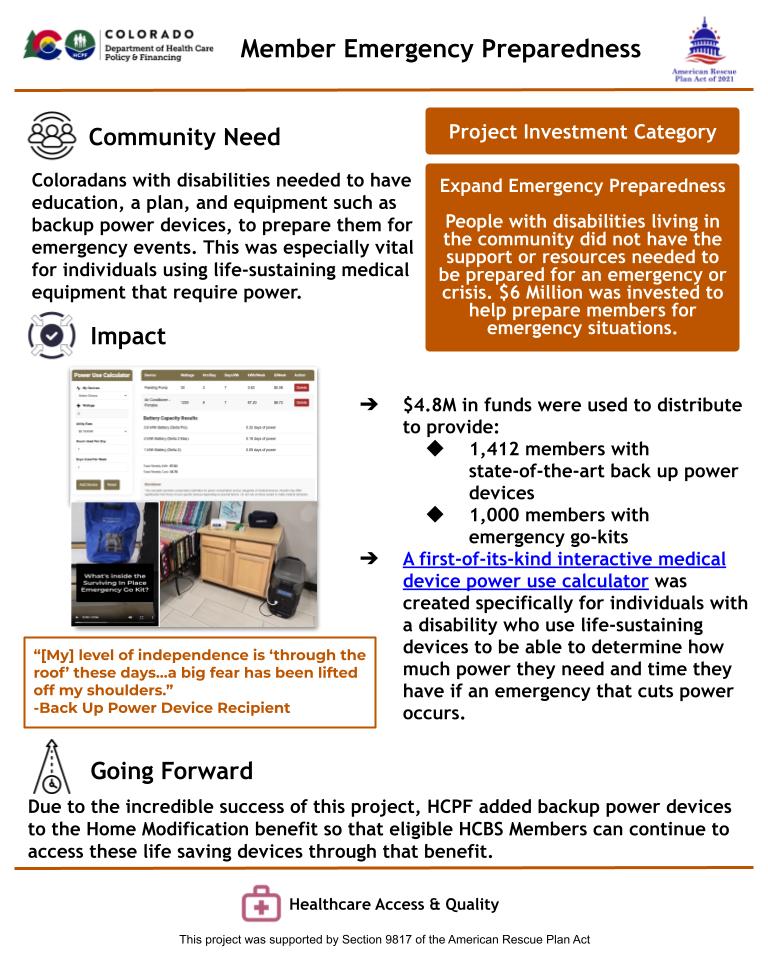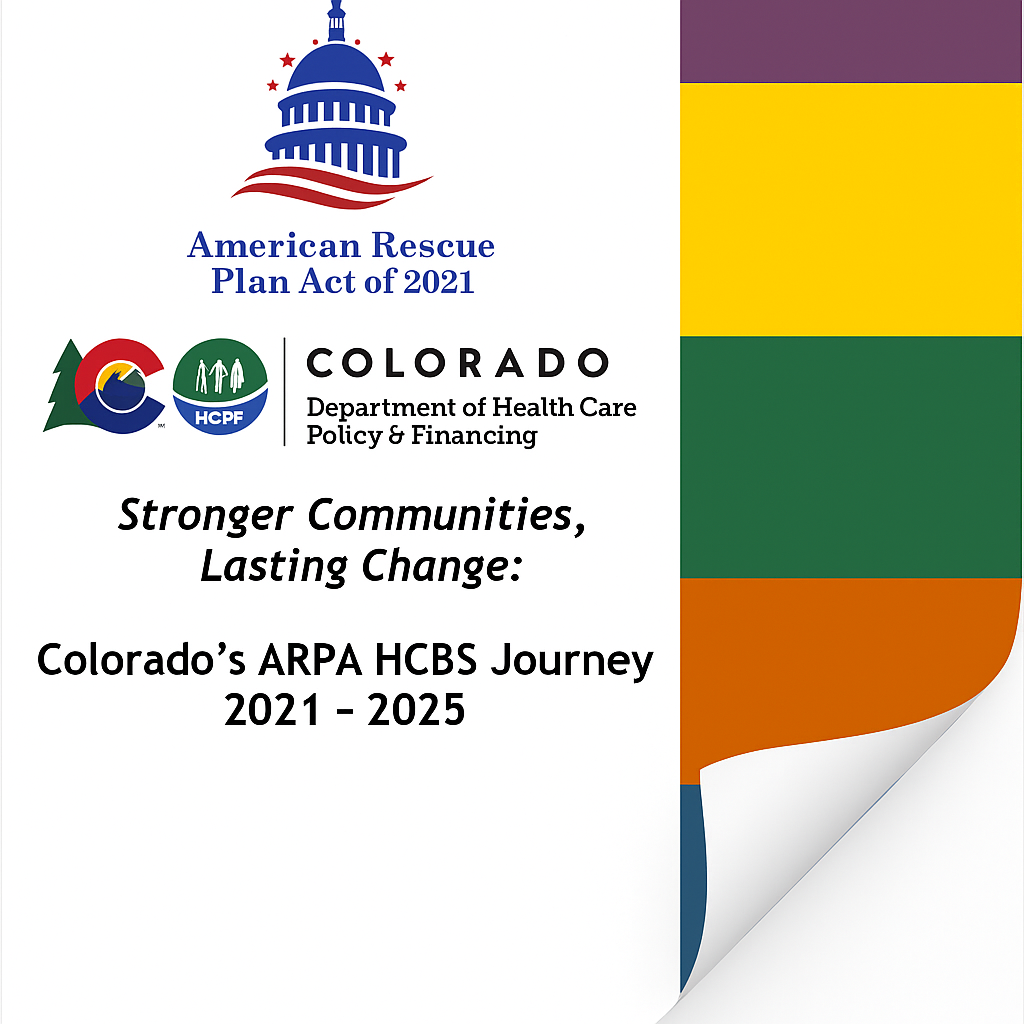Expand Emergency Preparedness
The Need
The pandemic has illustrated how crisis preparation and a swift response can dramatically change the outcome in the wake of an emergency. Individuals with disabilities, who live in the community, may not have the support or resources needed to be adequately prepared for an emergency, putting them at increased risk when a crisis arises. Building the capacity for both emergency preparedness and rapid response in the face of disasters, such as fires, floods, or a pandemic, will ensure Coloradans living with disabilities are protected.
Initiative 7.01 - Emergency Response Plans
Read a more in-depth summary of this project's outcomes

Initiative 7.02 - Member Emergency Preparedness
Read a more in-depth summary of this project's outcomes

